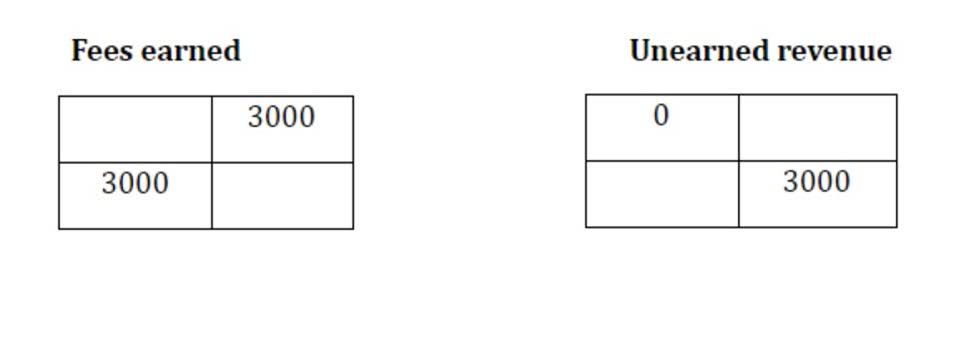
This technological integration streamlines operations and enhances transparency and trust within the organization. A skilled bookkeeper will not only compile data but also interpret trends and variances, providing insights that can guide strategic decisions. This requires understanding the business’s operational context and the ability to connect financial metrics with business activities.
- Like many other industries, bookkeeping has also seen a rise in remote work arrangements – especially among small- to mid-sized businesses.
- Accountants use this analysis to provide strategic advice to the organization’s management.
- Outsourcing is better for those wanting flexibility, expertise, and to save money.
- Taxfyle connects you to a licensed CPA or EA who can take time-consuming bookkeeping work off your hands.
- However, education becomes essential when working as a full-charge bookkeeper at larger banks and financial service firms.
- If you are looking for a more specialized career path, you may consider becoming a certified public accountant (CPA).
- Full-charge bookkeepers usually don’t provide advice on tax planning or try to act as financial advisors.
B. Decision-making and Reporting:
Navigating tax compliance is a fundamental responsibility for a full full charge bookkeeper charge bookkeeper. This task involves staying informed about changing tax laws and regulations that affect the organization. With governments frequently updating tax codes, bookkeepers must remain vigilant and informed to ensure that their organization adheres to all legal requirements. This involves understanding federal tax obligations and being aware of state and local tax implications, which can vary significantly depending on the organization’s location.
Case Studies: Successful Full Charge Bookkeeping in Action

Distinguishing between these roles is pivotal for enterprises aiming to fine-tune their financial operations. In the bustling business world, a full-charge bookkeeper is the navigator and steward of the financial ship, ensuring all accounting duties are performed accurately and efficiently. This role goes beyond standard bookkeeping, embracing a wider berth of responsibilities and trust. They will perform tax-related and payroll tasks, coordinate tasks with certified public accountants, and prepare information for auditing purposes. The Editorial Team at InterviewGuy.com is composed of certified interview coaches, seasoned HR professionals, and industry insiders.

Difference between a Full-Charge Bookkeeper and a Regular Bookkeeper
This training may include learning how to use accounting software and implementing best financial practices. A CPA, or a certified public accountant, is a licensed accounting professional. A state’s Board of Accountancy grants the CPA license, while the American Institute of Certified Public Accountants (AICPA) offers guidance and resources on obtaining this license.
- They help record complex transactions and process timesheets & payroll while ensuring compliance with all regulations and relevant laws by reporting to the firm’s senior manager.
- Certifications such as Certified Bookkeeper (CB) or Certified Public Bookkeeper (CPB) demonstrate a bookkeeper’s expertise and commitment to professional development.
- These tools provide real-time data access, which is invaluable for timely decision-making.
- It ensures consistency, reliability, and comparability in financial statements.
- These professionals should have comprehensive knowledge of accounting principles and procedures, and may also be expected to have experience with budget preparation and financial forecasting.
- This section will explore some of the exciting career paths that are available to you as you gain experience and expand your skills.
- This will show potential employers that you’re serious about your career and have the skills they’re looking for.
- While traditional firms may offer personalized service and expertise, their pricing can be higher compared to other options.
- By cultivating these essential skills, full charge bookkeepers can effectively navigate the complexities of their role and provide exceptional financial management services to businesses.
As a full charge bookkeeper, you https://www.bookstime.com/ play a crucial role in managing the financial operations of a company. Bookkeeping is essential to any successful business, ensuring accurate financial records and providing vital insights for decision-making. Among various bookkeeping methods, one that has gained significant traction in recent years is full charge bookkeeping.
Required Qualifications and Education
In addition, you may have to do things like create budgets or handle payroll tasks on your own if that’s part of your job description. So Financial Forecasting For Startups the position of a full charge bookkeeper doesn’t cover all the duties of an accountant. Also, the formal education requirements are higher for an accountant, and they need to hold a bachelor’s degree in accounting or finances at least. As your finances get more complex, you may need someone whose role sits somewhere between that of a bookkeeper and a controller.

Education for
This includes cash flow, fixed assets, and inventory levels/values, depending on what is covered by these areas in your job description. However, that “full charge” part implies that something more is also included in the package. And it is because a full-charge bookkeeping service provides some extra services that typically fall under accounting. A full charge bookkeeper holds a pivotal role in managing an organization’s financial records and transactions. As your accounting function grows and the roles get distributed across more employees, a controller could help oversee your accounting function.